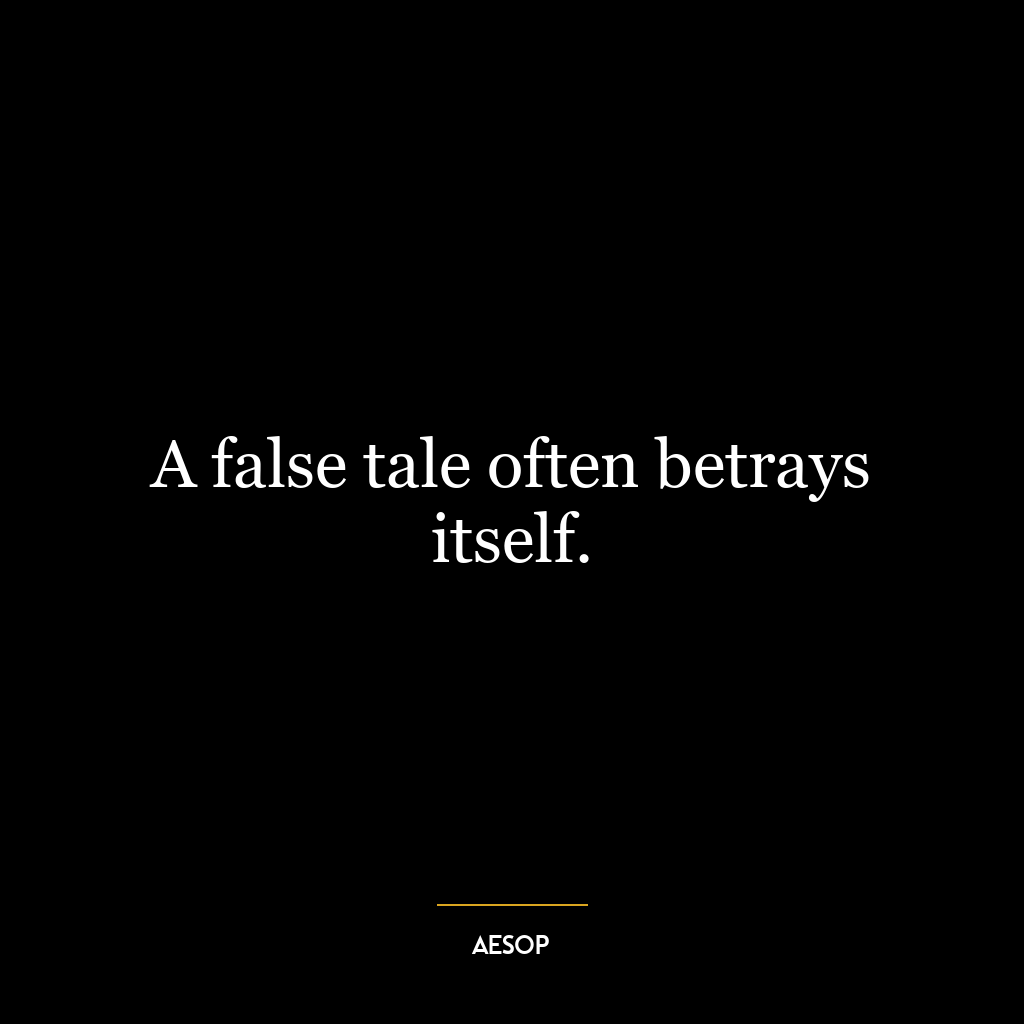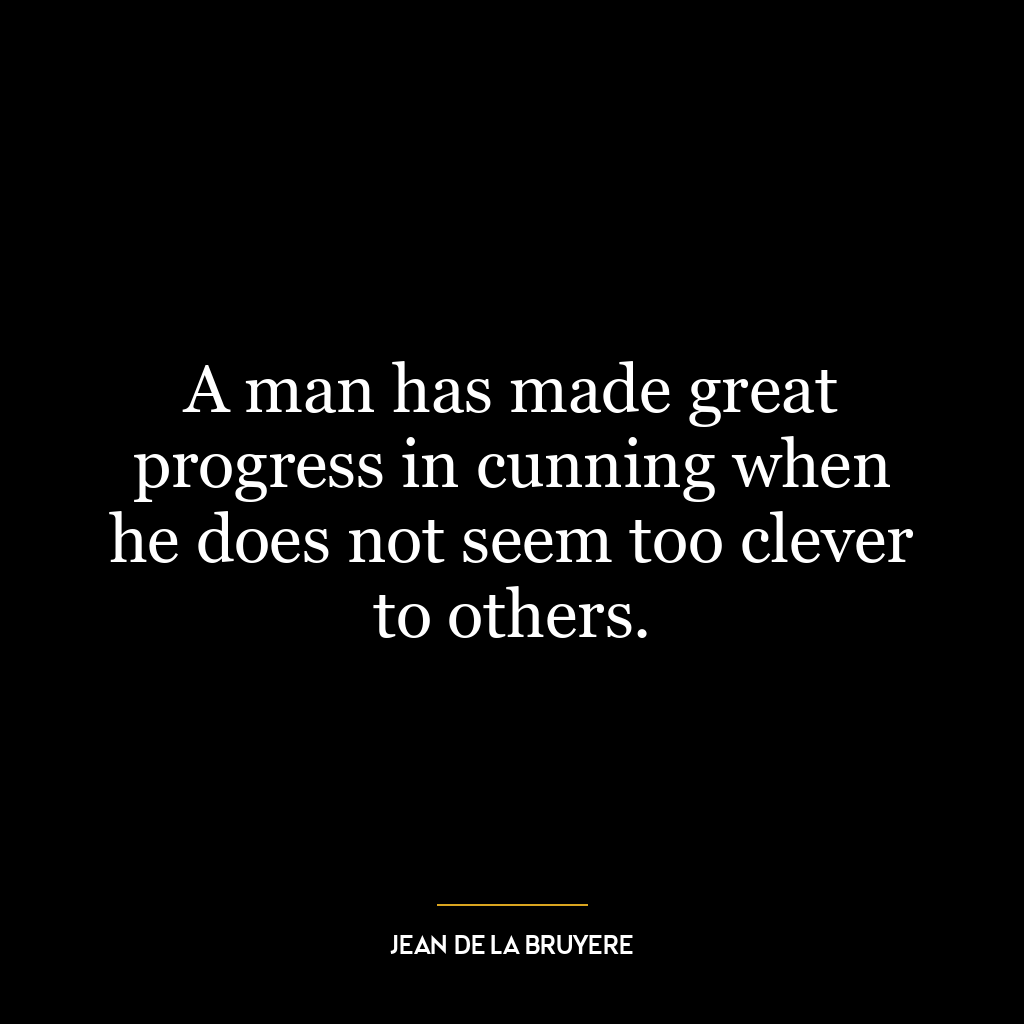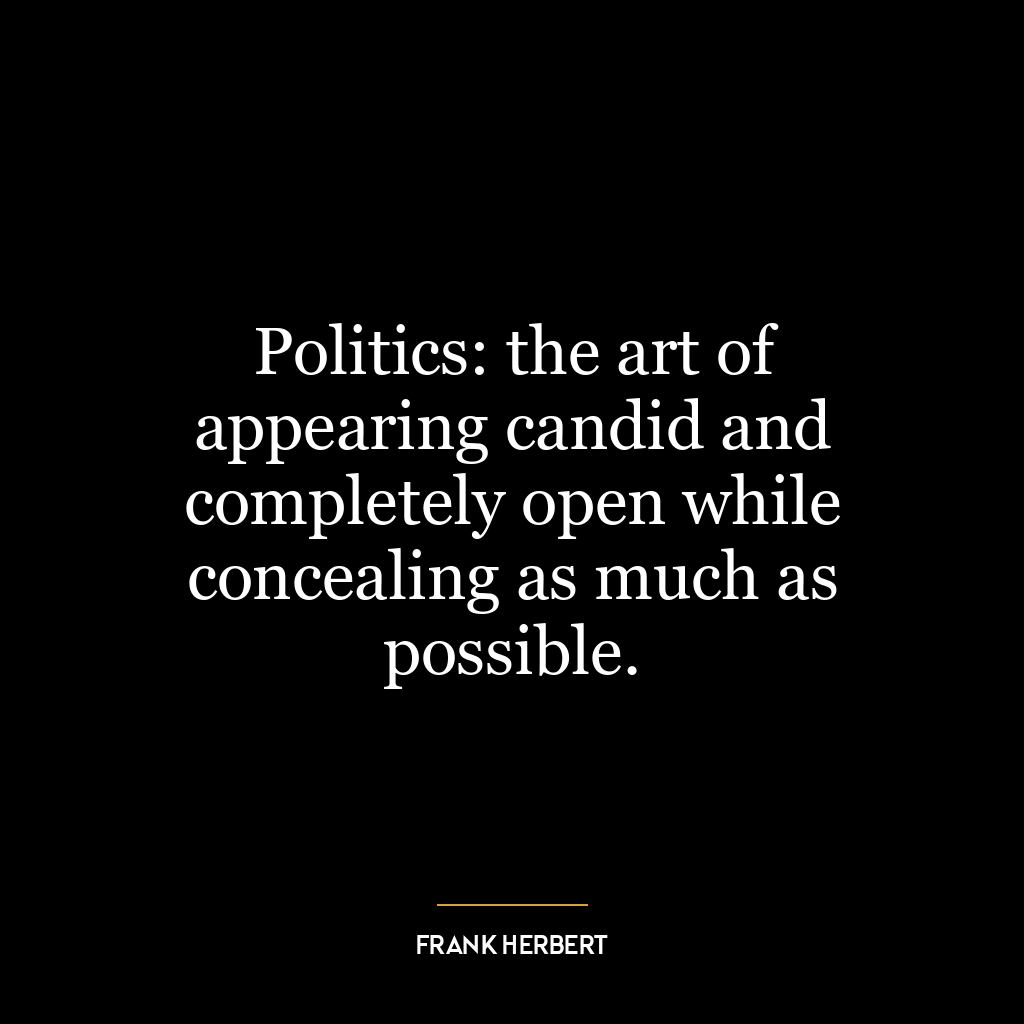A false tale often betrays itself.
“A false tale often betrays itself” is a profound statement that emphasizes the inherent weakness of dishonesty. Essentially, it means that a lie or a fabricated story often reveals its own falsity. This can happen in a variety of ways. For instance, a lie might contain internal inconsistencies that alert attentive listeners to its untruth. Alternatively, a false tale might contradict known facts, or the person telling the lie might behave in ways that inadvertently expose their dishonesty.
The quote underscores the idea that truth has a natural coherence and consistency that lies lack. Truth aligns with reality and is thus inherently stronger and more stable than falsehood. Lies, on the other hand, require constant effort to maintain and defend, and even then, they often collapse under scrutiny.
Applying this wisdom in today’s world is particularly relevant in the digital age where misinformation can spread rapidly. It serves as a reminder to be discerning consumers of information, to question inconsistencies, and to seek out reliable sources. It also underlines the importance of honesty in our personal interactions. In the realm of personal development, it reinforces the value of integrity. Living truthfully makes us more trustworthy and reliable individuals.
Moreover, in a professional setting, this quote can be a reminder that deceitful practices, such as embellishing qualifications or achievements, often backfire. They can lead to loss of credibility, damage to reputation, or even legal consequences. Therefore, it’s always better to be transparent and authentic, as the truth inevitably surfaces over time.
In conclusion, the statement “A false tale often betrays itself” is a timeless reminder of the power of truth and the inherent flaws of dishonesty. It encourages us to pursue truthfulness in our personal and professional lives, and to be critical and thoughtful consumers of information in the broader world.















